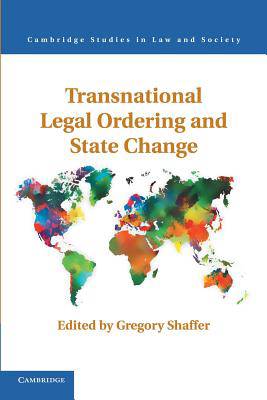
- Afhalen na 1 uur in een winkel met voorraad
- Gratis thuislevering in België vanaf € 30
- Ruim aanbod met 7 miljoen producten
- Afhalen na 1 uur in een winkel met voorraad
- Gratis thuislevering in België vanaf € 30
- Ruim aanbod met 7 miljoen producten
Zoeken
Transnational Legal Ordering and State Change
€ 61,95
+ 123 punten
Omschrijving
Law can no longer be viewed through a purely national lens. Transnational legal ordering affects the boundary of the state and the market, the allocation of power among national institutions, the role of professions and their expertise, and associational patterns that provide new normative frames. This book breaks new ground for understanding the impacts of transnational legal ordering within nation-states in today's globalized world. The book addresses the different dimensions of state change at stake and the factors that determine these impacts. It brings together leading scholars from sociology and law who study the effects of transnational legal ordering within different countries. Their case studies illustrate how transnational legal ordering interacts with national law and institutions in different regulatory areas, and cover anti-money laundering, bankruptcy, competition, education, intellectual property, health, and municipal water law and policy in different countries. The book explains the extent and limits of transnational legal ordering in today's world.
Specificaties
Betrokkenen
- Uitgeverij:
Inhoud
- Aantal bladzijden:
- 270
- Taal:
- Engels
- Reeks:
Eigenschappen
- Productcode (EAN):
- 9781107435865
- Verschijningsdatum:
- 21/08/2014
- Uitvoering:
- Paperback
- Formaat:
- Trade paperback (VS)
- Afmetingen:
- 152 mm x 229 mm
- Gewicht:
- 362 g

Alleen bij Standaard Boekhandel
+ 123 punten op je klantenkaart van Standaard Boekhandel
Beoordelingen
We publiceren alleen reviews die voldoen aan de voorwaarden voor reviews. Bekijk onze voorwaarden voor reviews.










